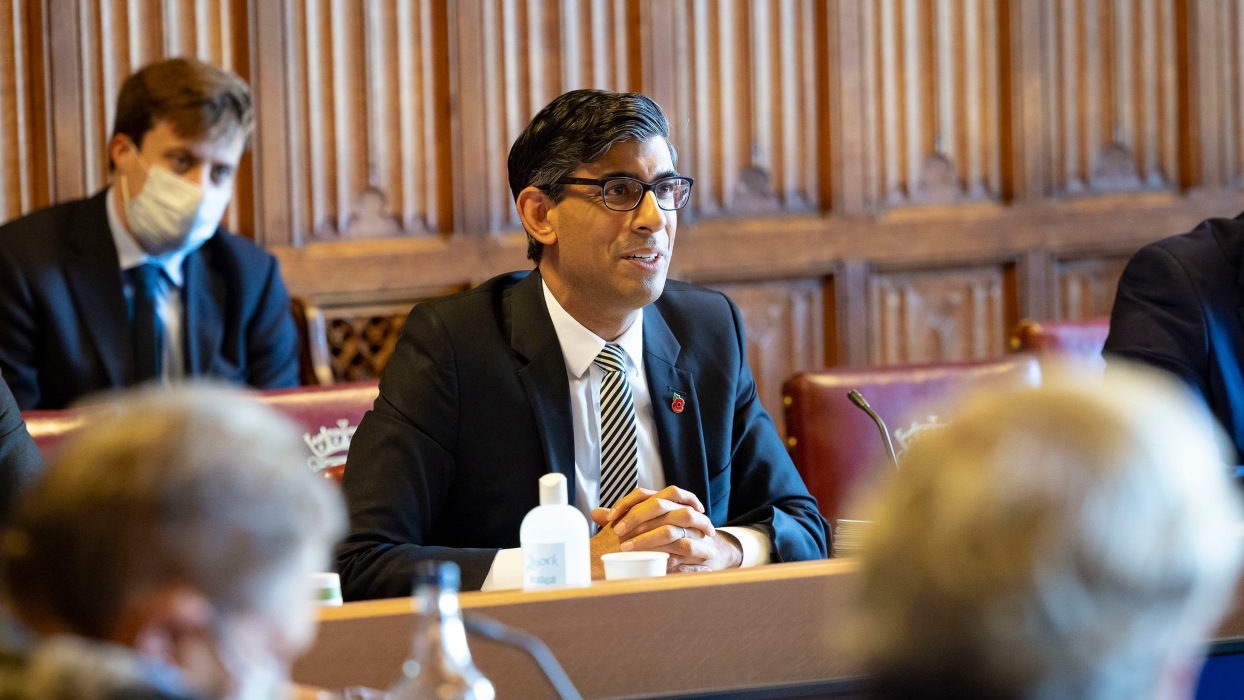 Governments have developed a convenient habit of blaming social problems on their citizens, placing too much emphasis on personal responsibility and pursuing policies to ‘nudge’ their citizens to better behaviour. Keith Dowding argues that responsibility for many of our biggest social crises should be laid at the feet of politicians.
Governments have developed a convenient habit of blaming social problems on their citizens, placing too much emphasis on personal responsibility and pursuing policies to ‘nudge’ their citizens to better behaviour. Keith Dowding argues that responsibility for many of our biggest social crises should be laid at the feet of politicians.
People are responsible for the choice they make from their menu of opportunities. And our past choices do affect today’s menu. But if we look at the opportunities available to each person in a society at any given time, that menu is set by society. And the government is the most important agent in society. Essentially, the way we live is the responsibility of the government. That is the argument of my new book, It’s the Government, Stupid: How Governments Blame Citizens for Their Own Policies.
In the book, I look at five policy areas: gun crime, obesity, homelessness, gambling and recreational drugs. I explain how the massive gun-related death toll in the US is directly attributable to the nature of gun regulations there. The gambling industry has benefited from a widespread relaxation of regulations – which I generally support – but I argue that governments need to do more to prevent the harms caused by gambling: different regulation is required. Meanwhile, irrationally, recreational drug use is still subject to severe regulation. I argue for legalisation buttressed by strong regulations akin to those applied to medical drugs, alcohol, and so on.
Here I’ll look at the topics of obesity and housing in more detail – for years, governments have been blaming us for their own policies in these areas. 28% of the British population is officially obese and another 35% overweight. Boris Johnson announced another initiative on the issue in July. If, like previous initiatives, it is directed at personal behaviour, it will fail. Diet plans, healthy eating, and exercise advice abound, and they might help some people. But they will not solve the crisis.
The obesity crisis is the government’s fault. Yes, it is largely caused by our increased consumption of refined grains, fats, and sugars, especially in the form of sugar-sweetened beverages. It has long been recognised that sugar-sweetened beverages are associated with high calorific intake, not only because of their own high calories, but also because frequent consumers of them have heightened sweet alertness and so are likely to consume greater quantities of high-calorie solids. They are less likely to drink water or milk and eat less fresh fruit. High sugar-sweetened beverages consumers are at greater risk of developing type 2 diabetes.
So why do we eat more of these highly-processed, highly-calorific products? First, they are cheap. Second, we prefer them.
Overall, in the past forty years, food prices have fallen by about 15%. So we can afford to eat more. However, price falls are not even. In fact, the price of healthy food has generally increased. Fresh fruits and vegetables cost about 118% more. Fish has gone up by 77%, dairy products by 56%. In other words, falling food prices almost exclusively mean manufactured foods associated with weight gain and obesity. Not only do people eat more, but they eat more energy-dense fast food.
Sugar is highly addictive for mammals. Repeatedly eating excessive amounts of sugar induces naloxone, an opioid. Feeding and then withdrawing the sugar causes rats to display signs of opioid withdrawal: chattering teeth, paw tremors and head shakes. Naloxone decreases extracellular dopamine (DA), increases acetylcholine (ACh) with the DA/ACh imbalance causing withdrawal symptoms qualitatively similar to those induced by withdrawal from morphine or nicotine. It is not easy to switch from unhealthy to healthy food. Telling us to eat fewer sugar-sweetened products and more fresh fruit and vegetables will not be effective.
Sugar-sweetened beverages and processed calorie-dense food could have been engineered to make us fat. They were not. But they were designed to appeal to our evolutionarily shaped dietary tastes. And we can’t blame food manufacturers for that. They are in a competitive business; they respond to how their rivals manufacture and advertise food. The only answer is to regulate. Firms will play by the rules – but first the government must set the rules.
Countries around the world are beginning to respond. Trans fat are banned in several countries, but not the UK. All the UK has done is urge food manufacturers not to use them, but it is not clear whether they have been reduced to any great extent in our food. The UK has also introduced a sugar tax, but we need evidence on how well it works. We should also consider tighter regulation of how sweet manufactured foods can be. Many sugar-free drinks, for example, contain sweeteners that make the drink exceptionally sweet, and we still do not know their long-term health effects.
By failing to act, the government is responsible for creating the circumstances which make it difficult, or even impossible, for many people to make choices that will benefit their health.
Turning now to homelessness, UK house prices have risen four-fold in real terms in the last forty years. Rents, too, have skyrocketed. Today, for the first time in the post-war period, young people are less likely to ever own their own home than their parents were. Is this really the government’s fault?
Yes. The housing crisis has been caused by changing fiscal and housing policies since the 1970s. First, governments created a massive bias in the tax system, favouring not only home owners, but also rentiers. Second, they stopped seeing it as their job to ensure everyone could afford housing; they pulled out of supplying public housing and abolished rent controls. A raft of legislation impelled widespread sale of council housing, hamstrung the ability of councils to replace it, and restricted the right to be housed.
The New Labour government of 1997 did not change direction; its 2002 Homeless Act encouraged local strategies to help prevent homelessness and promoted public–private partnerships, but provided no concrete help. The subsequent coalition and Conservative governments further reduced social housing and incentivised home ownership and the buy-to-let property market.
For the last forty years, government has been getting out of the business of directly providing homes and encouraging private renting and home ownership. Government policies have had the effect of inflating house prices: since the mid-1980s, house price growth in the UK has averaged 2.4% per annum compared to a European average of 1.1%, and between 1995 and 2014 it averaged 2.7%. Affordability has dropped dramatically, with only around 30% of new households able to buy in the 2010s, compared to 45% in the mid-1980s.
If we as individuals are really responsible for the obesity crisis and the housing crisis, did people somehow start to become less responsible over the past forty years? Some commentators blame the nanny state for creating a generation who expect everything to be given them on a plate. Yet how could this happen during precisely the period when government slashed its welfare spending? Rather, these crises were created by deliberate government policies.
People are responsible for the choices they make. But they can only choose from the menu of opportunities offered to them. We know people respond to prices. Make housing a lucrative investment and people will invest, inflating prices out of the reach of potential homeowners. Manufacture cheap fat-inducing foods that appeal to our tastebuds, and we will eat more of them.
Government is the main agent when it comes to the menu of opportunities. It should take responsibility. But it does not.
_____________________
 Keith Dowding is Distinguished Professor of Political Science and Political Philosophy at the Australian National University. He is the author of It’s the Government, Stupid: How Government’ Blame Citizens for Their Own Policies.
Keith Dowding is Distinguished Professor of Political Science and Political Philosophy at the Australian National University. He is the author of It’s the Government, Stupid: How Government’ Blame Citizens for Their Own Policies.








You have got me started. Don’t forget also the government’s deliberate creation of poverty in old age. The State pension should be raised urgently to the level at which you can live on it, say GBP 23,000 per person per year. It should also be paid as of the birthday after which you probably won’t be fit for work, say 60 for women and 65 for men. Instead, the State pays so little that if you depend upon it in areas where energy is expensive (again, the result of government policies) you will starve, freeze, or be out on the street — very possibly all three.
The obvious solution is to triple the pension and increase National Insurance to pay for it, so that your average pension saver will withdraw his savings from the bank and pay back National Insurance. The government responds by telling us that since the pension is inadequate, we should all save money with the banks.
There are three problems with that. First, the government is entirely responsible for the problem and they could fix it tomorrow if they wanted to. Secondly, most people have no money to save: substantial pay rises were last seen in 1966, when credit cards were first issued in the UK. Thirdly, the banks have sussed it, and they pay about 0.25% on savings while charging 44% on loans, and the government acts as cheerleaders for their ruinous pension schemes.
The situation is a disgrace, and it’s not our fault.
Regards, Ken Johnson